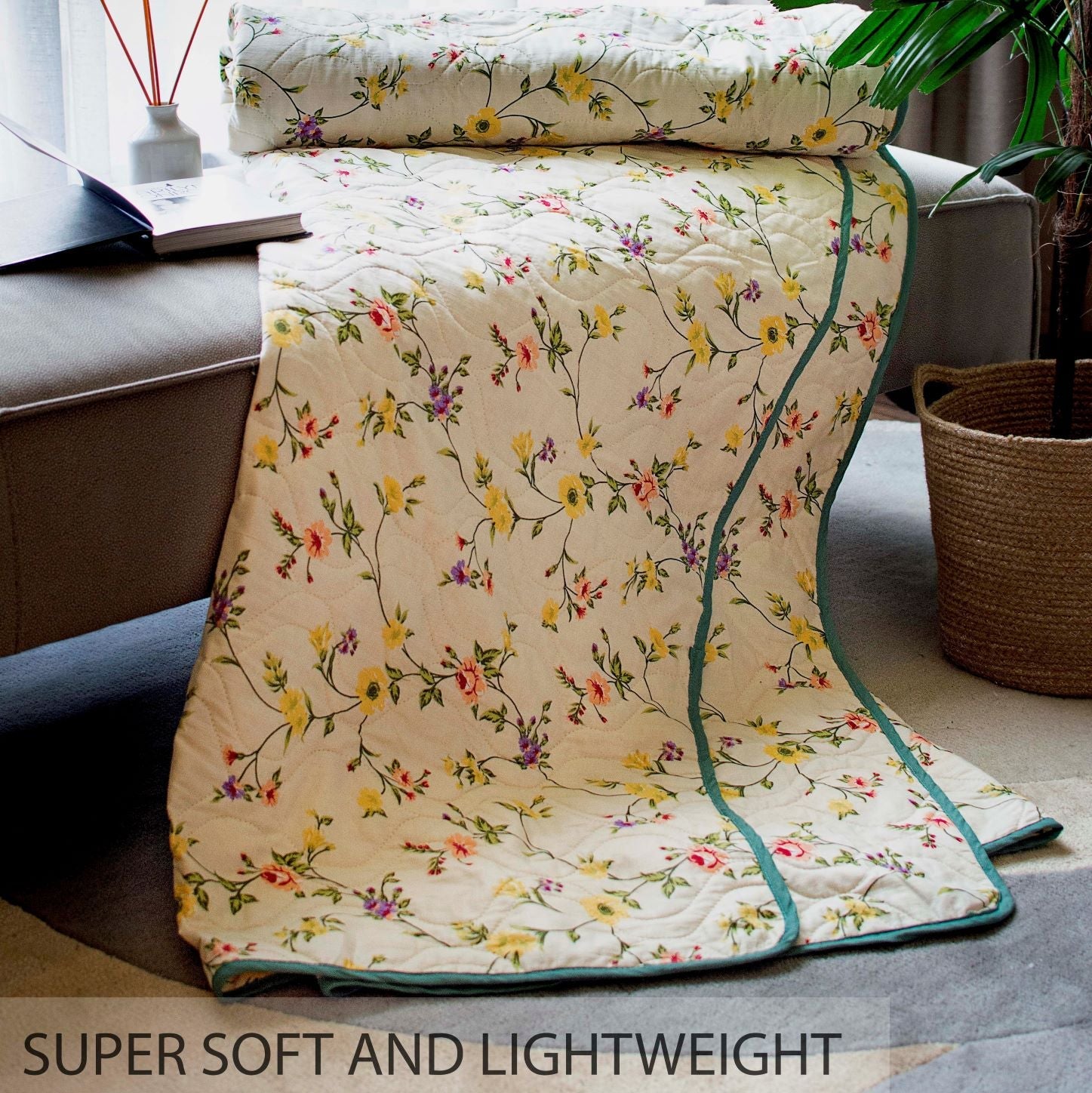How to choose best blankets for Sleeping?

Introduction:
Blankets play a crucial role in ensuring a comfortable and restful night's sleep. However, with a plethora of options available in the market, selecting the right blanket can be overwhelming. From material to weight to size, various factors influence the choice. In this comprehensive guide, we'll explore how to choose the best blankets for sleeping to suit your needs and preferences.
Understanding Blanket Materials:
Blankets come in a variety of materials, each offering unique characteristics that affect comfort and warmth. Common materials include:
- Cotton: Known for its breathability and softness, cotton blankets are ideal for those who prefer a lightweight and easy-to-maintain option. They are suitable for all seasons and provide excellent moisture-wicking properties.
- Wool: Wool blankets are renowned for their exceptional warmth and insulation, making them ideal for colder climates or winter use. Wool also has natural moisture-wicking properties and can regulate body temperature effectively.
- Fleece: Fleece blankets are soft, lightweight, and provide excellent warmth without being too heavy. They are often preferred for their cozy feel and are suitable for cooler temperatures.
- Down: Down blankets are filled with the soft undercoat of geese or ducks, offering unparalleled warmth and insulation. They are lightweight yet incredibly effective at trapping heat, making them ideal for cold sleepers.
- Synthetic: Synthetic blankets, such as polyester or microfiber, mimic the characteristics of natural materials while offering affordability and easy maintenance. They are hypoallergenic and suitable for those with allergies.
Considering Blanket Weight:
Blanket weight plays a significant role in determining comfort and suitability for different seasons. Here's a general guideline:
- Lightweight Blankets: Ideal for warmer climates or hot sleepers, lightweight blankets provide comfort without excessive warmth. They are breathable and suitable for use during spring and summer.
- Medium Weight Blankets: These blankets strike a balance between warmth and breathability, making them suitable for use throughout the year in moderate climates.
- Heavyweight Blankets: Designed for colder temperatures, heavy winter blankets offer maximum warmth and insulation. They are perfect for winter use or individuals who tend to feel cold while sleeping.
Selecting the Right Size:
Choosing the appropriate size of the blanket is essential for ensuring adequate coverage and comfort. Consider the following factors:
- Bed Size: Select a blanket size that corresponds to your bed size. Standard options include twin, full, queen, and king sizes. Ensure that the blanket dimensions are sufficient to cover the mattress adequately.
- Overhang: For a neat and aesthetically pleasing look, opt for a blanket that provides enough overhang on the sides and foot of the bed. This ensures ample coverage without being too bulky.
- Personal Preference: Some individuals prefer oversized blankets for extra coziness and versatility, while others may prefer a snug fit. Consider your personal preference and sleeping habits when selecting the size.
Assessing Maintenance and Care:
Ease of maintenance is another crucial factor to consider when choosing a blanket. Different materials may require specific care instructions:
- Machine Washable: Opt for blankets that are machine washable for convenience and easy cleaning. Check the care label for instructions regarding water temperature, detergent, and drying methods.
- Dry Clean Only: Some blankets, particularly those made of delicate materials like wool or down, may require dry cleaning to maintain their quality. Factor in the cost and convenience of dry cleaning when making your decision.
- Allergy Considerations: If you have allergies, choose hypoallergenic blankets that are resistant to dust mites, mold, and mildew. Regular washing and proper maintenance can also help alleviate allergy symptoms.
Considering Aesthetic and Design:
While comfort and functionality are paramount, the aesthetic appeal of the blanket should not be overlooked. Consider the following design elements:
- Color and Pattern: Select a color and pattern that complement your bedroom decor and personal style. Whether you prefer solid neutrals, vibrant hues, or intricate patterns, choose a blanket that enhances the overall ambiance of your sleeping space.
- Texture: Pay attention to the texture of the blanket, as it can add visual interest and tactile comfort to your bed. Whether you prefer a smooth finish, plush fleece, or textured weave, choose a texture that aligns with your preferences.
Read More :Stay Cool and Comfy: The Best Blanket for Your AC Room
Conclusion:
Choosing the best blanket for sleeping involves considering various factors such as material, weight, size, maintenance, and design. By understanding your personal preferences and sleeping habits, you can select a blanket that provides optimal comfort, warmth, and style for a restful night's sleep. Whether you prefer the lightweight breathability of cotton, the luxurious warmth of wool, or the cozy softness of fleece, there's a perfect blanket out there to suit your needs.
